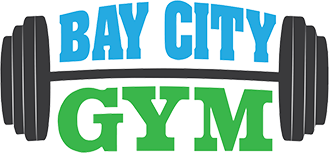Article by Gavin Stoddart – Bay City Gym Manager/Personal Trainer
Good sleep is important If you want to get the most out of your time at the gym, yet it is something more and more people are struggling with in our busy and tech overloaded world.
Poor sleep in the short term can lead to:
• Decreased memory.
• Poor concentration and alertness
• Moodiness
• Increased chance of accidents
• Lack of energy leading to reduced exercise and therefore overall health.
Poor sleep in the long term can lead to more serious health problems such as:
• High blood pressure
• Diabetes
• Heart attack
• Stroke
• Obesity
• Depression
• A decreased immune system
• Lower sex drive
• Increased cortisol levels thereby reducing your resilience to other stresses in your life. Cortisol can also break down collagen which helps keep tissue healthy including your skin- poor skin equals more wrinkles making you look older.
What can I do to help myself sleep better?
Developing a sleep routine is one of the most important steps you can take. It could be as simple as brushing your teeth and having a shower at the same time before bed every night – your body learns to wind down when you initiate these activities.
Keep off screens and devices one hour before bed. Screens give off blue light that can interfere with the production of melatonin (our sleep hormone)
Dim the lights before bed. Light causes the body to produce cortisol, our wake-up hormone, which is obviously counterproductive before bed but very useful when the sun comes up in the morning.
Take a good quality magnesium supplement. Magnesium helps to activate the parasympathetic nervous system which is responsible for getting you calm and relaxed. Magnesium also regulates the production of melatonin, which guides your sleep and wake cycles.
Get to bed by 10.30pm- around this time our bodies begin their physical repair which carries on until around 2am when it begins its mental repair (until around 6 am), so getting to bed late or getting up too early will interfere with these processes.
Allow 30 minutes to wind down before bed- anything that helps calm down your mind. Soft music, stretching, meditation or reading are some good examples.
What you do during the day also influences your sleep and circadian rhythms.
To give you the best chance of a good sleep try and follow these tips during the day:
Get some exercise in every day.
Make sure you get out in the day light. Light, especially sunlight, is a key component of your circadian rhythm and encourages good sleep.
Don’t smoke or drink- Nicotine is stimulating. Alcohol may help you fall asleep, but the quality will be poor, and you may end up waking up feeling more tired.
Reduce caffeine consumption. Caffeine is a stimulant and has a half-life of around 6 hours so try not to drink any caffeinated beverages after lunch time.
Try not to eat too late as you body will still be trying to digest dinner when you are trying to relax.
Sleep is a vital component of your wellness journey and improving your sleep will have a flow on affect through all aspects of your life. If you are struggling with sleep and these strategies have not helped, I would advise getting checked by a doctor in case there are medical reasons you are not sleeping. There are also sleep specialists that can go into a lot more detail to help you get a good nights sleep.
Happy dreams from the team at Bay City Gym.


